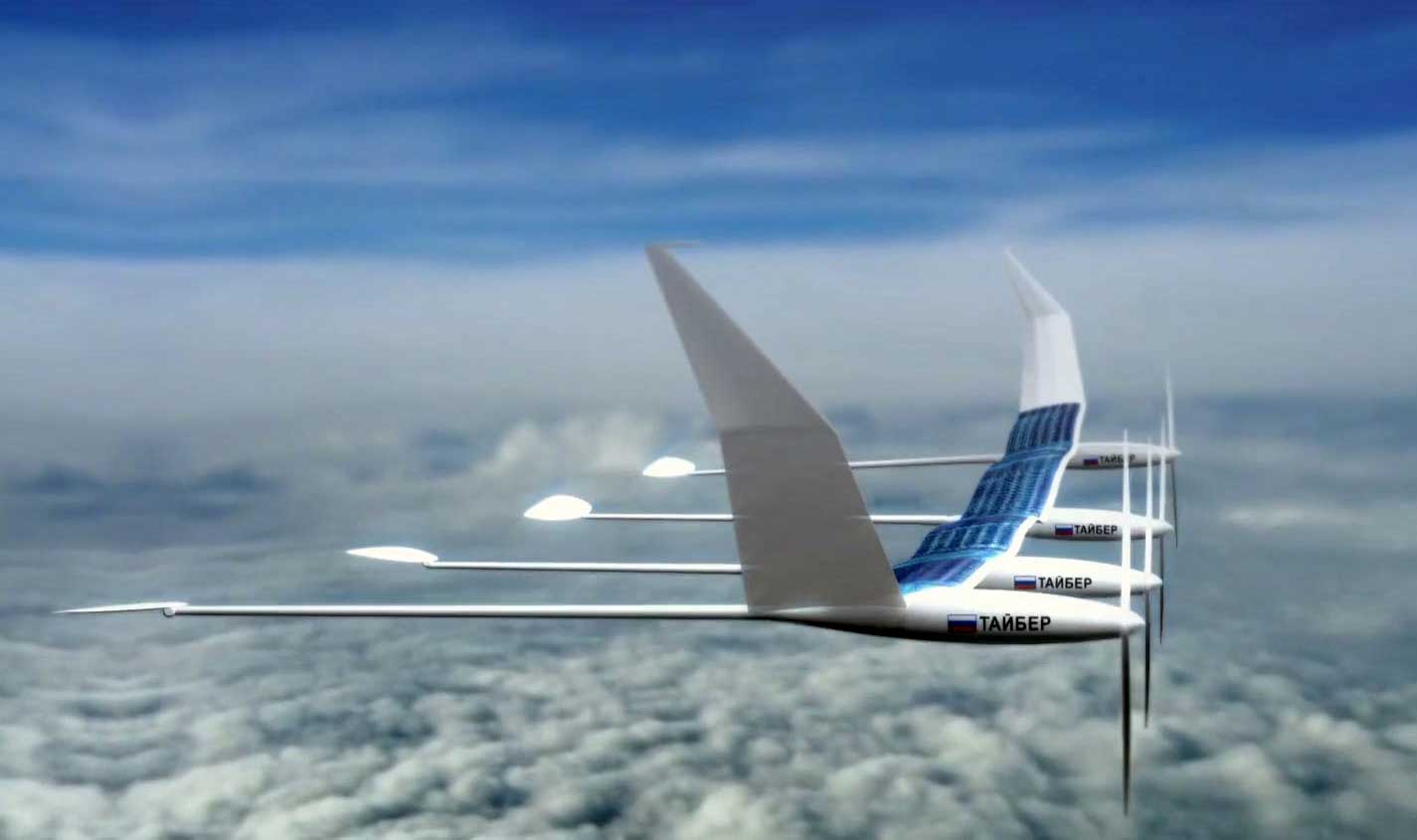
The first Sova prototype is equipped with solar panels and batteries.
Press photoRussia's new solar-powered Sova satellite could provide scientists with real-time monitoring of the northern and Arctic regions.
Usually, these functions are performed by spacecraft in low Earth orbit, but an atmospheric satellite performs this mission more efficiently and at a lower cost than regular orbital satellites, or even manned aircraft or fuel-cell unmanned aerial vehicles (UAVs).
The first Sova prototype is equipped with solar panels and batteries, weighs only 12 kilograms, and is made of carbon fiber-based materials. Flight tests of the satellite continued for two days and confirmed that everything works successfully.
Sova was developed by the company Tiber, a manufacturer of control systems for UAVs. The project is funded by the Foundation for Advanced Research Projects, which is Russia's equivalent of DARPA, the U.S. agency responsible for technical innovation in the American military.
All rights reserved by Rossiyskaya Gazeta.
Subscribe
to our newsletter!
Get the week's best stories straight to your inbox